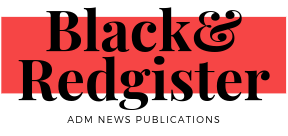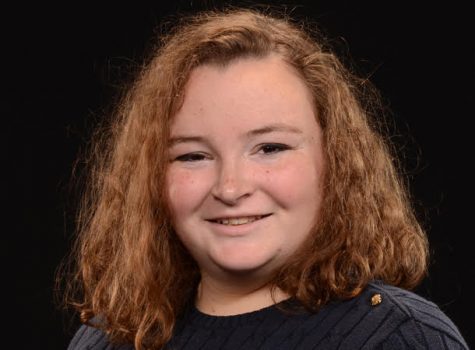Everything to Know about Speech

Photo by Olivia Klassen
Large Group Speech
It sounds exactly like it is, a large group of people memorizing and performing scripts. This is a good way to get yourself into speech in general. It’s pretty low risk, the worst you can do is say a line wrong. It might sound scary, but the practice you do for the months before the competition should get you familiar to the material you’re performing. There are Eight categories:
- Choral Reading– You get your script, it could be anything from a piece of paper to a bandanna you wear, and you can wear costumes. This group acts out a scene as a whole unit, with most or all of the actors speaking in unison, and only a few solo lines may be given out per year.
- Readers Theatre-You get a black binder with your script and typically dress in all black. This is more like acting a scene with individuality. You can and will get more solo lines here, as you will be a character; an example would be you playing Dr. Ryan in a scene set in a hospital. It is not required to be memorized but come competition day you’ll have practiced it so much it might as well be.
- Musical Theatre– You memorize, choreograph, and perform musical numbers from a musical, and you do not get to wear a costume. You have to wear shoes. There is approximately 27 rules about shoes.
- Mime– You memorize a piece that has no words, and you act out all the actions. Usually, there is background music. There is no costuming.
- Improv– Group Improv is an art that only few can master. You draw out of an envelope to get a situation, you have a few minutes to plan, and then you make up the performance on the spot. All your one-liners have to be planned or made up on the spot, but a well-practiced group can turn “Getting lost in your car” into a 5-minute comedy.
- Short Film– Short film is another art. You have months to plan, cast, shoot, and edit your film. Most students in short films are actors, but the editors and filmers can usually be found stressed out, hunched over their computers in the week leading up to competition.
- One-Act– You perform a one-act play. This includes memorizing, blocking, and costuming.
- Ensemble acting– You memorize a script, block it out, and perform it.
Individual Speech
Individual Speech is a little more risque. You are alone, so you have no one save you if you make a mistake but yourself, and sometimes there is nothing you can do to save yourself. Practices can be as little or as often as you make them, but the well-practiced people tend to do better at the competition.
- Expository– You chose a topic, do research, and write a speech about it. This typically needs a visual presentation.
- Acting- You memorize, block, and perform a monologue.
- Radio News– You get a packet with current events going on and you have a half-hour to make and rehearse a program. From there, you perform it for a group of people but you sit in a different room and speak into a microphone. Your watchers are in a different room than you until you come into the room after your performance.
- Story Telling– You memorize and tell a story. You can use a kid’s book or one that you find online.
- Poetry/Prose– These categories let you have a script to perform. It relies on you using your voice and techniques to act without moving to portray the emotion of the piece.
- Original Oratory– This is a speech that is usually meant to inform or inspire your audience. You write a speech, and you get the speech in front of you when you perform it.
- Improv– This one is very unique. You have to create two characters that are drawn and take them through a storyline.
- After Dinner– A speech dedicated to a group of people after an event. This can be set to be after a dinner or the start of an event. It is usually a humorous speech that is full of quick jokes and sarcasm.
- Lit program– This is one you get your script for. You find a passage from a book and usually a poem and put them together with a common theme.
- Musical Theatre– You sing one solo song from anything on MTI or THR (rights for theatrical shows) and block it out, again, you must wear shoes.
- Spontaneous Speaking– Yet another art form that few can master. This one requires you to read up on current events and know how to talk about them, you draw your events and talk about them for a few minutes. This category relies more on your ability to fake confidence on topics more than anything.
Competition
Competitions can be hosted across the state, they start with Community Night for large group speech and can end in All-State:
- Community Night- This is a contest hosted at home, in years past, there has been a practice judge to give a general score for the group, and it happens usually in the week leading up to Districts.
- Districts- This is the first competition. Here, the group or individual will perform their piece for one judge who will give oral feedback almost immediately after the performance, and the judge will fill out a ballot to determine if the group gets to go on to compete at State. If the performer or group gets a 1, they go on. If they get a 2, 3 or DQ, then the season is over.
- State- This is the next level of competition. There are three judges in the room to fill out ballots, and there is no feedback after the initial performance, as a result of the three judges, there is an average of the scores given. Groups or individuals that earn three 1s, two 1s and a 2, and rarely two 2s and a 1 have a chance to make it and perform at All-State.
- All-State- This is the highest honor a performer can get. The festival is hosted at Iowa State University (large group) and UNI (individuals) There are two categories: Performing and Non-performing. Non-performing groups and individuals still get all the glory of making All-State, but they don’t have to perform at the festival.
Speech is a great way to make lots of crazy actor friends, memories, and enhance your skills as a networker. You can gain lots of skills from this extra-curricular that you are almost guaranteed to use in the future. For information on joining the speech team for the 2020-2021 season, hunt down Mrs. Seidl in the library.



